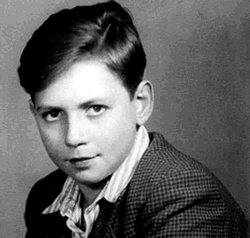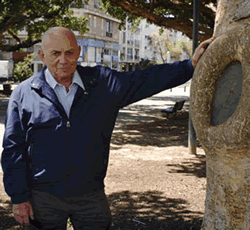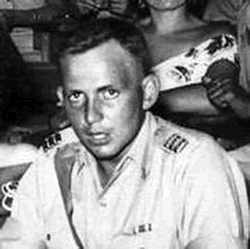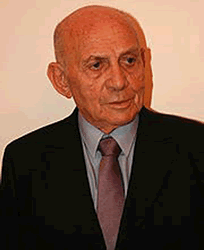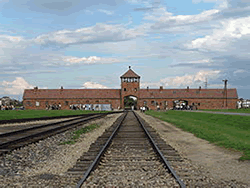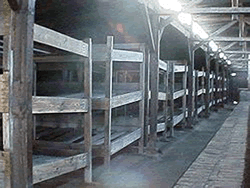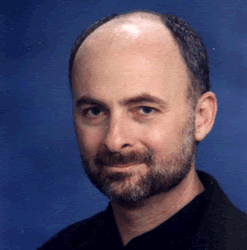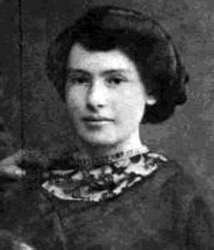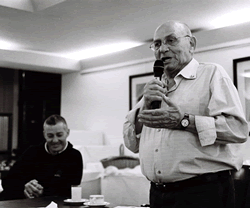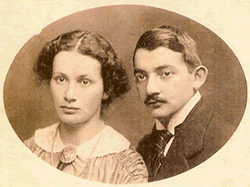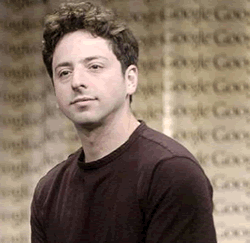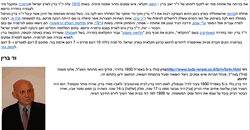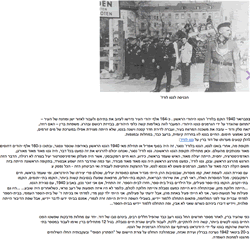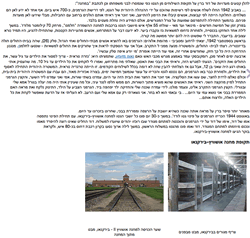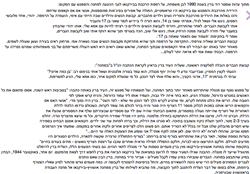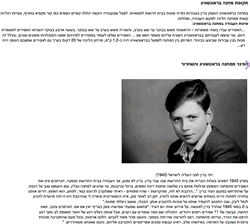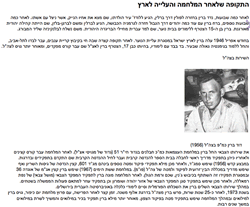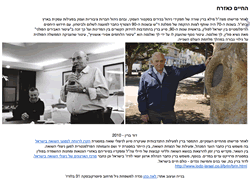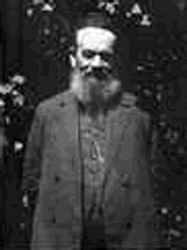#brin-1
David Brin was born in Lodz in 1930. He is a holocaust survivor.
#brin-7
Glen David Brin (born October 6, 1950) is an American scientist and award-winning author of science fiction. He has received the Hugo,[1][2] Locus,[3][4][5] Campbell[6] and Nebula Awards.[7] His Campbell Award winning novel The Postman was adapted as a feature film and starred Kevin Costner in 1997.
#brin-8
Miriam (Maria) Etta Brin
#brin-10
Dr. Zeev Brin with wife Esther (sister in law of S.Y. Agnon).
#brin-11
Sergey Mikhaylovich Brin
#brin-12
Isaac Yehuda Brin
Birth:
February 17, 1885
Szczekociny, Zawiercie County, ?l?skie, Poland
#brin-22
#brin-23
Alter Zelik Brin (Bryn)
Birth:
February 6, 1864
Zamosc, Zamo?? County, Lublin Voivodeship, Poland
Son of Judka Bryn and Tauba Laia Bryn
Sergey Mikhaylovich Brin (Russian: ?????´? ????´?????? ????; born August 21, 1973) is an American Business magnate and computer scientist who, with Larry Page, co-founded Google, one of the most profitable Internet companies.[4] As of 2014, his personal wealth was estimated to be US$ 28.9 billion.[2] Together, Brin and Page own about 16 percent of the company.
Brin immigrated to the United States with his family from the Soviet Union at the age of six. He earned his undergraduate degree at the University of Maryland, following in his father's and grandfather's footsteps by studying mathematics, as well as computer science. After graduation, he moved to Stanford University to acquire a PhD in computer science. There he met Larry Page, with whom he later became friends. They crammed their dormitory room with inexpensive computers and applied Brin's data mining system to build a superior search engine. The program became popular at Stanford and they suspended their PhD studies to start up Google in a rented garage.
The Economist newspaper referred to Brin as an "Enlightenment Man", and someone who believes that "knowledge is always good, and certainly always better than ignorance", a philosophy that is summed up by Google's motto "Organize the world's information and make it universally accessible and useful"[5][6] and "Don't be evil".
Michael Brin Son of Yisrael Brin (Son of Abram Kalamovsky and Olga Brin) and Maya Katzin
Husband of Genia Brin
Father of Sergey Brin and Sam Brin
David Brin was born in Glendale, California in 1950. His ancestors come from Poland, from the area around Konin. His grandfather was drafted into the Russian army and fought in the Russian-Japanese War of 1905.[8]
In 1973, David Brin graduated from the California Institute of Technology with a Bachelor of Science in astrophysics.[9] At the University of California, San Diego, he earned a Master of Science in applied physics in 1978 and a Doctor of Philosophy in space science in 1981.
Career
Brin is a 2010 fellow of the Institute for Ethics and Emerging Technologies.[10] He helped establish the Arthur C. Clarke Center for Human Imagination (UCSD). He serves on the advisory board of NASA's Innovative and Advanced Concepts group and frequently does futurist consulting for corporations and government agencies.
Brin consults and speaks for a wide variety of groups interested in the future, ranging from Defense Department agencies and the CIA to Procter & Gamble, SAP, Google and other major corporations. He has also been a participant in discussions at the Philanthropy Roundtable and other groups seeking innovative problem solving approaches.
Brin has a very active side career in public speaking and consultation. He appears frequently on science or future related television shows such as "The Universe," "Life After People," "Alien Encounters," "Worlds of Tomorrow," and many others. He briefly was a regular on the challenge design show "The Architechs" in which "five geniuses" were challenged to solve a major problem (e.g. new ways in and out of burning buildings) in 48 hours.
Bibliography
Fiction
Brin's body of science fiction, when taken as a whole, is normally categorized as hard science fiction, in that most (not all) works apply some degree of plausible scientific or technological change as partial plot drivers. Exceptions include the graphic novel The Life Eaters, in which Norse gods assist the Nazis. Earth and Existence were notable near future extrapolations that explore 30 year trends. Fans and readers maintain a web site tracking and scoring Brin's fictional and nonfictional predictions, especially from Earth.
The Uplift stories
Main article: Uplift Universe
About half of Brin's works are in his Uplift Universe. These have won a large following in the SF community, twice winning the international Science Fiction Achievement Award (Hugo Award) in the Best Novel category.
This future history depicts a huge galactic civilization responsible for "uplifting" all forms of life which are potentially capable of developing sapience and star-travelling ability. The stories focus almost exclusively on oxygen-breathing species but make it clear that there are other "orders of life", of which hydrogen-breathers are the most important. In the "Uplift" novels humans are economically and technologically the weakest spacefaring race, and are an anomaly since they have no apparent "patron" species responsible for their uplift from animal pre-sapience (Whether their patron abandoned them or whether humans gained sentience on their own is never definitively settled). This means that humanity (and its dolphin and chimpanzee clients) have entered the huge and fractious Civilization of the Five Galaxies unprepared; catching up to this advanced and uneasy culture provides tension for most of the Uplift stories. As a result several races are eager to force humans to become their clients; but galactic law saves humans from this fate because they are patrons themselves, having already made considerable progress in uplifting dolphins and chimpanzees before developing faster-than-light space travel, and thus attracting the attention of galactic civilization. Many sentients see humans' lack of patrons as an opportunity to bully them mercilessly. It does not help that humans have a relatively non-hierarchical society with rather informal habits of speech, while most of galactic society is rather feudal and very particular about etiquette, especially deference. An aspect that readers find most appealing has been Brin's portrayal of neo-dolphin (Startide Rising) and neo-chimpanzee (Uplift War) characters, exploring their possible range of personalities, arts, mythologies and "good or bad" tendencies, with psychologies plausibly offset from our own, contributing to the diversity of Earth Culture. The Second Uplift Trilogy extends these stories to a hidden world where many refugee races must learn to get along and overcome their natures, in order to thrive.
The Uplift novels are:
• Sundiver (1980)
• Startide Rising (1983) -- Hugo and Locus SF Awards winner, 1984;[11] Nebula Award winner, 1983 [12]
• The Uplift War (1987) -- Hugo and Locus SF Awards winner, 1988;[13] Nebula Award nominee, 1987 [14]
• The Uplift Trilogy (sometimes called the Uplift Storm trilogy):
? Brightness Reef (1995) -- Hugo and Locus SF Awards nominee, 1996 [15]
? Infinity's Shore (1996)
? Heaven's Reach (1998) ISBN 0-553-57473-6
Additionally, Brin wrote two short stories set in the Uplift universe, "Temptation" and "Aficionado". "Temptation" appeared in Robert Silverberg's anthology Far Horizons: All New Tales from the Greatest Worlds of Science Fiction and is set after the events in the Infinity's Shore. "Aficionado" was published in the limited-edition collection Tomorrow Happens, and is a short-story prequel to the novels. This story was originally published as "Life in the Extreme" in Popular Science Magazine Special Edition (August 1998). Both stories are also freely available on Brin's website. Brin has stated that he intends to return to the uplift universe at some point, but is not currently working on anything. A segment of his novel Existence deals with the origins of dolphin Uplift and hence might be considered linked to the Uplift Universe.
Brin collaborated with fellow physicist and author Gregory Benford on a hard-SF novel "Heart of the Comet" portraying the colonization of Halley's Comet and ensuing settlement of the Oort Cloud. Brin also co-wrote with Kevin Lenagh Contacting Aliens: An Illustrated Guide to David Brin's Uplift Universe.
There is a detailed Uplift supplement for the roleplaying game GURPS allowing players to play out adventures in the universe described in these novels. Although Brin did not write the GURPS supplement, he did contribute information to it.
Several of his novels refer to the fictional Anglic language, a future variety of English.
Brin has contrasted the Uplift saga—in which humans find themselves one minor species among a universe of many thousands of more advanced races—with his short story "The Crystal Spheres" (available in the collection The River of Time), in which humans begin searching for extraterrestrial life only to learn that the universe is empty of other sapient life... almost.
Other fiction
Brin has written a number of stand-alone novels:
• The Practice Effect (1984)
• The Postman (1985) -- Campbell and Locus SF Awards winner, Hugo Award nominee, 1986;[16] Nebula Award nominee, 1985 [17] Originally appeared, in substantially different form, as a three-part novella in Isaac Asimov's Science Fiction Magazine. (Filmed by Kevin Costner as a major motion picture)
• Heart of the Comet (1986) (with Gregory Benford) -- Locus SF Award nominee, 1987 [14]
• Earth (1990) -- Hugo and Locus SF Awards nominee, 1991 [18] (Contains many successful predictions of current trends (such as Email Spam) and technologies: Earth Prediction wiki)
• Glory Season (1993) -- Hugo and Locus SF Awards nominee, 1994 [19]
• Kiln People (2002) -- Campbell, Clarke, Hugo, and Locus SF Awards nominee, 2003.[20] Kiln People (published in the UK as Kil'n People) had the unusual distinction of finishing second in four different awards for best SF/fantasy novel of 2002—the Hugo, the Locus, the John W. Campbell Award, and the Arthur C. Clarke Award; each time finishing behind a different book.
• Existence, Tor Books, 2012 ISBN 978-0-765-30361-5
Graphic Novels:
• Forgiveness (2002) -- set in the Star Trek: The Next Generation universe
• The Life Eaters (2003) -- published by the Wildstorm imprint of DC Comics, art by Scott Hampton
• Tinkerers (2010) -- discussion of the causes of the decline of American manufacturing [21]
His short fiction has been collected in:
• The River of Time (1986)
• Otherness (1994)
• Tomorrow Happens (2003)
Other well-known works by David Brin include his book that completes and ties up all of the loose ends in the legendary Asimov's Foundation Universe:
• Foundation's Triumph (1999)
Brin designed the game Tribes, published in 1998 by Steve Jackson Games.[22] Brin wrote the storyline for the video game Ecco the Dolphin: Defender of the Future.
Brin also wrote a number of articles criticising several science-fiction and fantasy series, including Star Wars, and The Lord of the Rings. On Star Wars[23] Brin focused on what he called George Lucas's "agenda", describing how he saw the basis of the Star Wars universe as profoundly anti-democratic, emphasizing born-demigods over normal humans (and aliens). These essays inspired a debate-format book, Star Wars On Trial, which clashed "defense vs prosecution" testimony covering a dozen political and philosophical and storytelling charges against the Star Wars Universe. Brin also criticised The Lord of the Rings[24] for what he perceived to be its unquestioning devotion to a traditional elitist social structure, its positive depiction of the slaughter of the opposing forces, and its romantic backward-looking worldview - though he called Tolkien "the most honest of the romantic authors."
Concerns and themes of his work
Many of Brin's "original" works (works not set into pre-existing series or "universes") focus on the impact on human society of technology humankind develops for itself, a theme which commonly appears in contemporary North American science-fiction. This is most noticeable in The Practice Effect, Glory Season and Kiln People.
Brin's Jewish heritage may be the source of two other strong themes in his works. Tikkun Olam ("repairing the world", i.e. people have a duty to make the world a better place) is originally a religious concept but Brin, like many non-orthodox Jews, has adapted this into a secular notion of working to improve the human condition, to increase knowledge, and to prevent long-term evils. Brin has confirmed that this notion in part underscores the notion of humans as "caretakers" of sentient-species-yet-to-be, as he explains in a concluding note at the end of Startide Rising; and it plays a key role in The Uplift War, where the Thennanin are converted from enemies to allies of the Terragens (humans and other sapients that originated on Earth) when they realize that making the world a better place and being good caretakers are core values of both civilizations. Many of Brin's novels emphasize another element of Jewish tradition, the importance of laws and legality, whether intergalactic law in the Uplift series or that of near-future California in Kiln People but, on the other hand, Brin has stated that "Truly mature citizens ought not to need an intricate wrapping of laws and regulations, in order to do what common sense dictates as good for all".[25]
Nonfiction
• The Transparent Society: Will Technology Force Us to Choose Between Privacy and Freedom? (1998) ISBN 0-7382-0144-8 - won the Freedom of Speech Award of the American Library Association
• Star Wars on Trial: Science Fiction and Fantasy Writers Debate the Most Popular Science Fiction Films of All Time (2006) ISBN 1-932100-89-X
• Various scientific papers have been released in the years since his doctoral and post-doctoral work in space physics, cometary studies, optics and spacecraft design for the California Space Institute.
Personal life
Dr. Brin currently lives in southern California with his wife and children.
References
1. 1984 Hugo Awards, Best Novel:Startide Rising by David Brin (Bantam, 1983), The Hugo Awards
2. Who's Getting Your Vote?, October 29, 2008, Reason
3. Startide Rising, Science Fiction & Fantasy Books, WWEnd
4. The Postman, Science Fiction & Fantasy Books, WWEnd
5. The Uplift War, Science Fiction & Fantasy Books, WWEnd
6. 1986: 1st - The Postman, David Brin, 2003: 2nd - Kiln People, David Brin, The John W. Campbell Memorial Award
7. http://www.sfwa.org/awards/archive/pastwin.htm[dead link]
8. DAVID BRIN REVEALED: A two-year-long interview with Slawek Wojtowicz
9. "Caltech Commencement Program". Caltech Campus Publications. 1973-06-08. Retrieved 2013-03-29.
10. David Brin at the Institute for Ethics and Emerging Technologies
11. "1984 Award Winners & Nominees | Science Fiction & Fantasy Books by Award | WWEnd". Worldswithoutend.com. Retrieved 2011-07-26.
12. "1983 Award Winners & Nominees | Science Fiction & Fantasy Books by Award | WWEnd". Worldswithoutend.com. Retrieved 2011-07-26.
13. "1988 Award Winners & Nominees | Science Fiction & Fantasy Books by Award | WWEnd". Worldswithoutend.com. Retrieved 2011-07-26.
14. "1987 Award Winners & Nominees | Science Fiction & Fantasy Books by Award | WWEnd". Worldswithoutend.com. Retrieved 2011-07-26.
15. "1996 Award Winners & Nominees | Science Fiction & Fantasy Books by Award | WWEnd". Worldswithoutend.com. Retrieved 2011-07-26.
16. "1986 Award Winners & Nominees | Science Fiction & Fantasy Books by Award | WWEnd". Worldswithoutend.com. Retrieved 2011-07-26.
17. "1985 Award Winners & Nominees | Science Fiction & Fantasy Books by Award | WWEnd". Worldswithoutend.com. Retrieved 2011-07-26.
18. "1991 Award Winners & Nominees | Science Fiction & Fantasy Books by Award | WWEnd". Worldswithoutend.com. Retrieved 2011-07-26.
19. "1994 Award Winners & Nominees | Science Fiction & Fantasy Books by Award | WWEnd". Worldswithoutend.com. Retrieved 2011-07-26.
20. "2003 Award Winners & Nominees | Science Fiction & Fantasy Books by Award | WWEnd". Worldswithoutend.com. Retrieved 2011-07-26.
21. "Forward | Graphic Novel". Forward.msci.org. Retrieved 2011-07-26.
22. Shannon Appelcline (2011). Designers & Dragons. Mongoose Publishing. p. 110. ISBN 978-1-907702-58-7.
23. Star Wars
24. The Lord of the Rings
25. http://www.reformthelp.org/rights/moderation/goal.php[dead link]
External links
